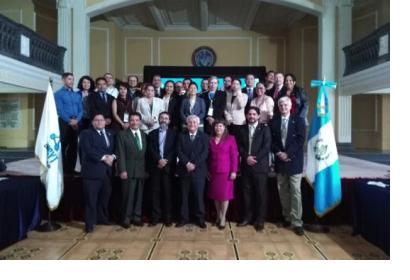The National Secretariat for Science and Technology of Guatemala (SENACYT) organized a week-long event called CONVERCIENCIA 2017 to showcase the research conducted by Guatemalan researchers living abroad and researchers living in Guatemala. The event, conducted from 24 to 28 July 2017, includes conferences in universities and research centres in Guatemala City, Antigua City, Chiquimula City, and Quetzaltenango City. The event brought together researchers who are focusing their efforts in physics, mathematics, chemistry, public health, biology and bio-technology, space technology, information and communications technologies and computer science among others. SENACYT mobilized 19 Guatemalan researchers from countries in Europe, Asia, and America.
UN-SPIDER was invited to participate in this event, and took the opportunity to showcase the use of space technologies in disaster risk reduction, early warning systems and response efforts. Particular attention was given the on-going project conducted by UN-SPIDER and nine international, regional and national partners targeting the Strengthening of Early Warning Systems for Droughts (SEWS-D).
UN-SPIDER, SENACYT and the Executive Secretariat of Guatemala’s National Coordinating Agency for Disaster Risk Reduction (SE-CONRED) joined forces between 31 July and 2 August to conduct a training course focusing on two UN-SPIDER Recommended Practices targeting drought and forest fires. The training course contributed to the institutionalization of the inter-institutional technical team that SE-CONRED is implementing as a way to generate relevant geospatial information in a timely basis. The training course also benefited several students of the San Carlos University of Guatemala.

